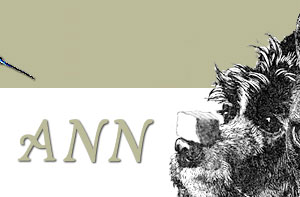 Mice are small, social animals. They're quiet, but very active and entertaining to watch.
Because of their high-activity level and quick movements, they're more suitable for adults to handle than for children. Mice are small, social animals. They're quiet, but very active and entertaining to watch.
Because of their high-activity level and quick movements, they're more suitable for adults to handle than for children.
Home Sweet Home
Your mouse needs a cage that is at least 18 inches long by 12 inches wide and 12 inches high. If you have more than one mouse, increase the floor area by half a square foot per additional animal. A cage with a solid floor works best. Wire mesh should be no wider than one-fourth inch to prevent escape. An aquarium can be modified for your mouse, but be aware that glass sides restrict airflow and keep heat in, which could be detrimental to your mouse's health. Be sure to place the cage out of drafts and direct sunlight. Make sure your cage closes securely or your aquarium has a tight-fitting screen cover to prevent your mouse from escaping. Provide a box for sleeping.
Chow Time
Commercial mouse food is available at pet supply stores and will provide a nutritionally balanced diet for your mouse. You can supplement your mouse's diet with fresh foods like fruit, vegetables, nuts, seeds, grains, hard-boiled eggs and cooked meat (no spices). Use a sturdy crockery bowl that can't be tipped over and is easy to clean.
A salt lick is recommended to prevent mineral deficiencies. Hang it from the side of the cage to prevent contamination from feces and urine. Keep fresh water available in a suspended water bottle at all times.
Health Matters
The average life span of a mouse is two to three years and they reach sexual maturity at about four weeks of age. Even though mice are very clean and spend a great deal of time grooming themselves, they tend to have a unique scent.
Mice are extremely active and need an exercise wheel and/or supervised time out of the cage to prevent cage paralysis. A mouse will hardly ever jump from a height of more than two feet, so you can build your mouse a "gym" for exercise.
Handling with Care
When picking up your mouse, approach it slowly and be careful not to startle it. Curl one hand over its body, with your fingers and thumb around its abdomen. Hold it securely, but don't squeeze. You can carry your mouse in your cupped hand with the other hand over it for protection or in a loose pocket. The more you handle your mouse, the friendlier and tamer it will be.
Behavior Bits
Mice are social creatures and do poorly when isolated. If you're not able to spend much time with your mouse, you'll want to get a companion for it. Littermates of the same sex tend to get along the best, but males that are introduced as adults will be aggressive toward each other. In order to prevent unwanted litters, you'll want to make sure your mice are the same sex.
Mice depend greatly on their sense of smell and communicate with each other on a supersonic level that humans can't hear. They have poor vision, but can perceive the colors yellow and red. Mice are quite intelligent and can be taught to come when you call, to reach up and "beg" and to navigate mazes.
Resources
American Fancy Rat & Mouse Association, 9230 64th Street, riverside, CA 92509-5924; 626-966-0350 (Louise Stack); www.afrma.org.
Little Mouse Club, 603 Brandt Ave., New Cumberland, PA 17070
Bielfeld, Horst. Mice: A Complete Pet Owner's Manual. Barron Book Series. New York.
Reprinted with permission Copyright 2000. Dumb Friends League. All rights reserved. |


